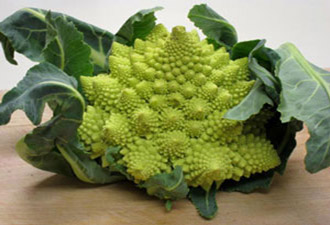Have you ever seen a Honeycomb?
Have you ever wondered how bees cleverly build these hexagonal wax cells as stories for their honey?
I’m talking here about symmetries in nature, the faces of beauty in our universe.
Most of the symmetry patterns all over around us can be described, simulated, and promoted by geometric aspects, even the romanesco broccoli which you may have passed by in the grocery store, at the time we usually think about it as just a food, indeed it’s one of the many instances of fractal symmetry in nature.
 Read Also: Plants of the Qur’an: Olives
Read Also: Plants of the Qur’an: Olives
In geometry, a fractal is a complex pattern where each part has the same geometric pattern as the whole.
Actually, sometimes the most simple symmetry forums in nature can possess true geometric patterns which add mathematically beautiful dimensions to our lives.
What Does Symmetry Mean?

The first idea that comes to our minds when symmetry is mentioned is the things which have equal or balanced sides or parts (symmetrical parts). An example of this in daily life is car wheels –just imagine if these things were deformed.
Yet in nature, the rich place of symmetries, there are the webs made by the orb web spiders. These spider webs nearly have perfect circular shapes with almost equidistant radial supports coming out of the middle and a spiral woven to catch prey.
So far, scientists aren’t entirely sure why orb spiders are so geometry-inclined since tests have shown that orbed webs don’t ensnare food any better than irregularly shaped webs.
We as Muslims believe that Almighty Allah has created these fascinating and sophisticated creatures and shapes to enable people to know, love, and believe in Him.
Personally, I think it’s so hard to see all that perfectness and beauty almost everywhere we look and just don’t ask who is able to create all this, who guides these tiny creatures to be engineers, who endow them by varieties, knowledge, and certainly wisdom.
How did the genes inside the bodies of bees know that the hexagonal shape is the perfect shape to store the largest possible amount of honey while using the least amount of wax, while other shapes, like circles for instance, would leave a gap between the cells. Also simply humans can only reproduce hexagonal figures with a ruler and compass.
No comments:
Post a Comment